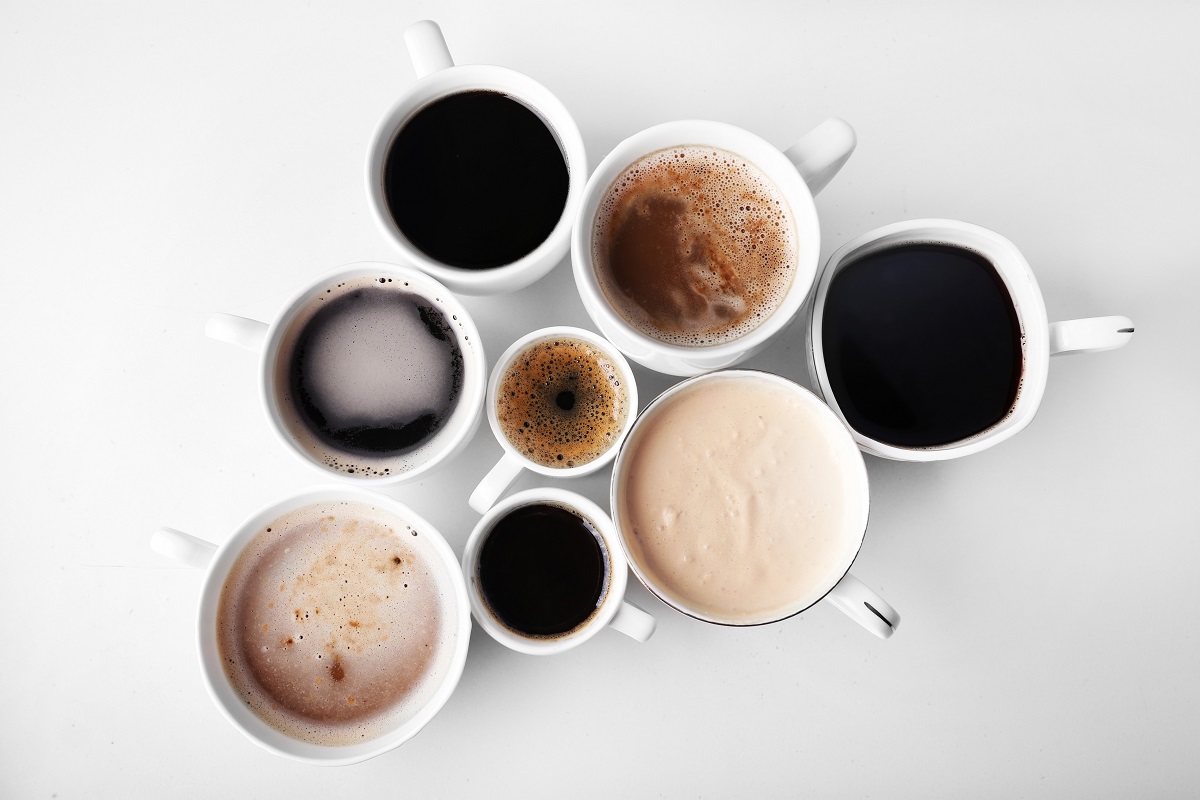Heart Health, Patient Blog | May 10 2017
A dietitian’s take on common caffeine misconceptions

The truth about your a.m. fix
There are many misconceptions about caffeine. The two most common sources of caffeine are coffee and tea leaves, but kola nuts and cocoa beans are also notable sources.
Caffeine contents vary significantly depending on serving size and type of food/beverage. A typical 8 oz. cup of brewed coffee contains about 100 mg of caffeine; while the same volume of black tea contains about 50 mg of caffeine. Caffeine content can range from more than 160 mg in energy drinks to less than 4 mg in chocolate flavored syrup. Even decaffeinated coffee still has some caffeine. Some over-the-counter medications, pain relievers, and diet pills contain some caffeine. In fact, caffeine can increase the effectiveness of other pain relievers.
Myth #1: Caffeine is addictive.
Caffeine is a stimulant to the central nervous system and regular use can cause mild dependence. However, caffeine does not cause the severity of withdrawal symptoms or harmful behaviors as alcohol or other drugs.
Myth #2: Caffeine causes insomnia.
The body quickly absorbs caffeine and quickly eliminates it as well. The half-life of caffeine is relatively short; within five to seven hours, half of the caffeine has been eliminated by the body. Therefore, most people will not be affected by their morning joe, but late afternoon coffee runs may impact your bedtime.
Myth #3: Caffeine increases risks of osteoporosis, heart disease and cancer.
While moderate amounts of caffeine (approximately 300 mg per day, or three cups of brewed coffee) will not affect most healthy adults, others are more vulnerable to the effects of the caffeine.
- Osteoporosis: High levels of caffeine (more than 750 mg per day) can increase the loss of both calcium and magnesium. But recent studies have shown that it does not necessarily increase your risk for bone loss.
- Cardiovascular disease: A slight elevation in heart rate and blood pressure is common in those sensitive to caffeine. But several studies do not link caffeine to elevated cholesterol, irregular heartbeat, or increased risk for cardiovascular disease.
- Cancer: Studies involving more than 20,000 people revealed no relationship between caffeine and cancer. In fact, caffeine may have a protective effect against some cancers.
Myth #4: Caffeine is harmful to women trying to get pregnant.
Many studies show no link between low amounts of caffeine and pregnancy or infertility. Women who are pregnant or trying to become pregnant should speak with their doctors about how much caffeine is appropriate for them.
Myth #5: Caffeine can be dehydrating.
Caffeine may cause you to urinate more, however the fluid intake consumed from caffeinated beverages offsets the fluid loss from urination. Even though caffeine may have a mild diuretic effect, it doesn’t actually cause dehydration.
Myth #6: Caffeine harms children, who now consume more than adults.
As energy drinks have become more popular, kids are drinking more caffeine. Some kids are sensitive to the caffeine and are at risk for developing temporary anxiety or irritability with a “crash” at the end. Also, most caffeinated beverages that kids drink are higher in sugar content. These empty calories put kids at higher risk for obesity. Therefore, even if the caffeine itself isn’t harmful to children, the drinks have other harmful side effects, including weight gain.
Myth #7: Caffeine can be used to “sober up.”
Research suggests this is a myth and people only think caffeine helps them sober up. However, reaction time is still impaired until the alcohol is processed by the body. Always have a plan to get home safely if you have been drinking alcohol.
If you have more questions about caffeine, it’s always a great idea to speak with a registered dietitian. Registered dietitians are the only credentialed experts qualified to address your unique health questions.
Who we are
Dietitians On Demand is the nationwide leader in providing dietitians with jobs they love. If flexibility, competitive pay, a full benefits package, free CPEUs each month and a team dedicated to dietitians sound good to you, apply to our positions today.





